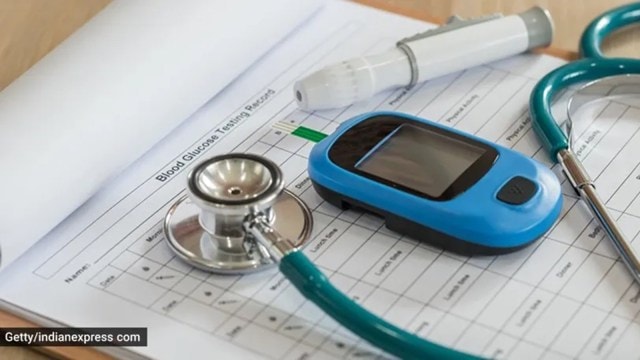📣 For more lifestyle news, click here to join our WhatsApp Channel and also follow us on Instagram
‘My fasting glucose is 103.3 mg/dL and HbA1c is 4.84 per cent. Should I be worried?’
Blood sugar levels fluctuate in response to stress, sleep quality, illness, and certain medications.
 Is it too much? (Photo: Getty Images/Thinkstock)
Is it too much? (Photo: Getty Images/Thinkstock)We have been trying our best to provide you with new information related to blood glucose issues and potential solutions. So, when a Quora user asked, ‘My fasting glucose is 103.3 mg/dL and HbA1c is 4.84 per cent. Should I be worried?’, we decided to ask a medical expert. “An HbA1c of 4.84 per cent is well within the normal range, reflecting good average blood sugar control over the past 2–3 months. A fasting glucose level of 103.3 mg/dL is slightly above the typical normal cutoff (100 mg/dL), but a single reading alone does not confirm diabetes. It’s worth monitoring, but not a cause for immediate concern,” said Dr Vijay Negalur, HoD diabetology, KIMS Hospitals, Thane.
Is there a risk of diabetes?
A single reading above 100 mg/dL may suggest “impaired fasting glucose,” often considered prediabetes, affirmed Dr Negalur. “However, diagnosis requires repeated tests or an oral glucose tolerance test. Lifestyle factors such as diet, exercise, and weight management play a major role in preventing progression to diabetes,” he added.
What should I focus on right now?
Focus on lifestyle and regular monitoring. “Pay attention to your weight, energy levels, and any unusual symptoms like excessive thirst or frequent urination,” said Dr Negalur.
Consume a balanced diet that includes fibre-rich foods, lean proteins, and whole grains, while limiting sugary or highly processed foods. “Regular physical activity, even 30 minutes of brisk walking daily, can have a significant impact on blood sugar levels,” mentioned Dr Negalur.
 Stress can lead to an increase in blood sugar levels (Photo: Freepik)
Stress can lead to an increase in blood sugar levels (Photo: Freepik)
Can stress or other factors affect these readings?
Yes. Blood sugar levels fluctuate in response to stress, sleep quality, illness, and certain medications. “That’s why a single reading is not enough to conclude. Consistent monitoring and considering the bigger picture of overall health is important,” said Dr Negalur.
 Is your fasting glucose high? (Photo: Quora)
Is your fasting glucose high? (Photo: Quora)
Should I consult a doctor immediately?
Dr Manjusha Agarwal, senior consultant, internal medicine, Gleneagles Hospital Parel Mumbai noted that one should repeat fasting glucose (preferably morning, after 8+ hours fasting) and consider an oral glucose tolerance test (OGTT) or repeat A1c if results stay borderline. “Focus on lifestyle: modest weight loss if overweight, regular aerobic and resistance exercise, balanced diet low in refined carbs, and smoking cessation,” said Dr Agarwal.
This isn’t an emergency, but it’s advisable to discuss your readings with a physician, especially if you have a family history of diabetes or other risk factors. “A doctor may suggest follow-up tests and provide guidance on preventive measures tailored to your needs,” said Dr Negalur.
DISCLAIMER: This article is based on information from the public domain and/or the experts we spoke to. Always consult your health practitioner before starting any routine.
📣 For more lifestyle news, click here to join our WhatsApp Channel and also follow us on Instagram





- 01
- 02
- 03
- 04
- 05






















